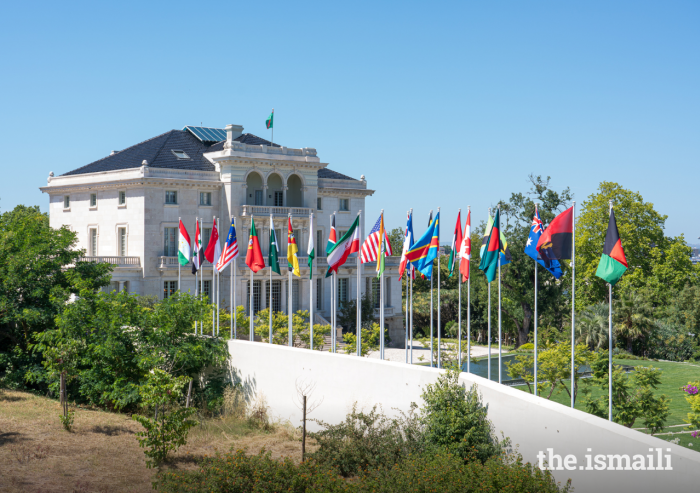In a fast-paced and rapidly-changing world, the ability to adapt and continue learning is an essential skill to develop in order to take advantage of emerging opportunities. To help foster that skill within the Jamat, the Ismaili Council for the European Union (ICEU) has initiated the Lifelong Learning Programme, which aims to turn learning into a continuous and natural process in the life of every Ismaili in Europe.
“We live in a world that is changing very fast, and our built-in curiosity allows us to question and find more meaning in what we do,” says Tasneem Virani, Director of the ICEU Lifelong Learning Programme. She stresses the importance of continuous learning in a globalised world, pointing out that “sometimes we get caught-up in our lives and have no time to reflect or to see our breaks or phases in life as an opportunity for growth.”
A European priority
Lifelong learning is a core component of the Lisbon Agenda – a roadmap that emerged from a summit of European leaders held in March 2000. As stated by the European Commission, “learning opportunities should be available to all citizens on an ongoing basis. In practice this should mean that citizens each have individual learning pathways, suitable to their needs and interests at all stages of their lives.”The European Union (EU) places great importance on its lifelong learning initiatives. In the face of an aging population, increasing migration, and the need for skilled workers, the European Union has stressed that “the advent of a knowledge-based society requires improved means of communicating and using knowledge and opportunities for lifelong learning.”
The European Commission's Communication on Lifelong Learning goes on to say that “formal systems of provision need to become much more open and flexible, so that such opportunities can truly be tailored to the needs of the learner, or indeed the potential learner.”
Similarly, the ICEU's Lifelong Learning Programme shares many of the key ingredients of the knowledge society in its mandate: to promote continuous and shared learning, to raise an individual's personal and economic potential, and to encourage social conscience and active citizenship within the European Community.
An Islamic imperative
Lifelong learning has long been part of the Islamic tradition, which emphasises the pursuit of knowledge and its dissemination for the benefit of society. In his speech at the Annual Meeting of the International Baccalaureate in Atlanta on 18 April 2008, Mawlana Hazar Imam spoke about the importance of reinvigorating the concept:
“In an age of accelerating change, when even the most sophisticated skills are quickly outdated, we will find many allies in the developing world who are coming to understand that the most important skill anyone can learn is the ability to go on learning.”
Hazar Imam went on to say that, “it is because we [Muslims] see humankind, despite our differences, as children of God and born from one soul, that we insist on reaching beyond traditional boundaries as we deliberate, communicate, and educate internationally.”
Major initiatives
The first initiative, launched during the Golden Jubilee, is the Certificate in Lifelong Learning, being offered in partnership with the London School of Economics and Political Science (LSE). The LSE-awarded certificate encourages learners to engage in a wide variety of learning and skill development, and also provides accreditation to courses inside and outside the Jamati institutional framework. Over 280 learners, representing a wide variety of backgrounds from across Europe, are currently participating in the Certificate programme.Programme Director Tasneem Virani acknowledges that learning can take place formally through degrees and diplomas, non-formally by acquiring skills via short courses or attending seminars, and informally from interactions with peers and in experiences throughout life. In keeping with this, the ICEU Lifelong Learning programme has launched two initiatives that reflect the broad perspectives and approaches to learning.
More recently, a second initiative, the Language Learning Lab, has begun its pilot testing and aims to provide the European Jamat with a platform to engage with cultural diversity through the development of language skills.
Local projects
Similarly, the Ismaili Council for Portugal has initiated a set of training courses for the Jamat entitled STEP by STEP. The courses are offered on a semester-based rotation and cover a wide variety of interests and subject areas such as digital photography, project management, and languages including Arabic. Instructors for the courses come from within and outside the Jamat, and each session is evaluated in order to meet the Certificate requirements.To date, hundreds of courses in France, Portugal, the United Kingdom, and across Europe have been evaluated and accredited. Among those courses are special programmes offered by Jamati institutions. For example, dozens of learners across Europe, have taken a financial literacy course offered by the World Bank in conjunction with the Women's Activities Portfolio of the Ismaili Council for the United Kingdom.
Alida Castro, STEP by STEP coordinator and member of the Ismaili Council for Portugal, explains that the programme is meant to “broaden the horizon of interests and skills in the Jamat and to encourage the process of learning as a way of life.” To date, over 200 people in Portugal have enrolled in the classes.
Going forward
The ICEU Lifelong Learning Programme continues to move forward with unique programmatic initiatives to help foster a spirit of lifelong learning within the European Jamat. Some of those initiatives will be featured on TheIsmaili.org in the months to come.







